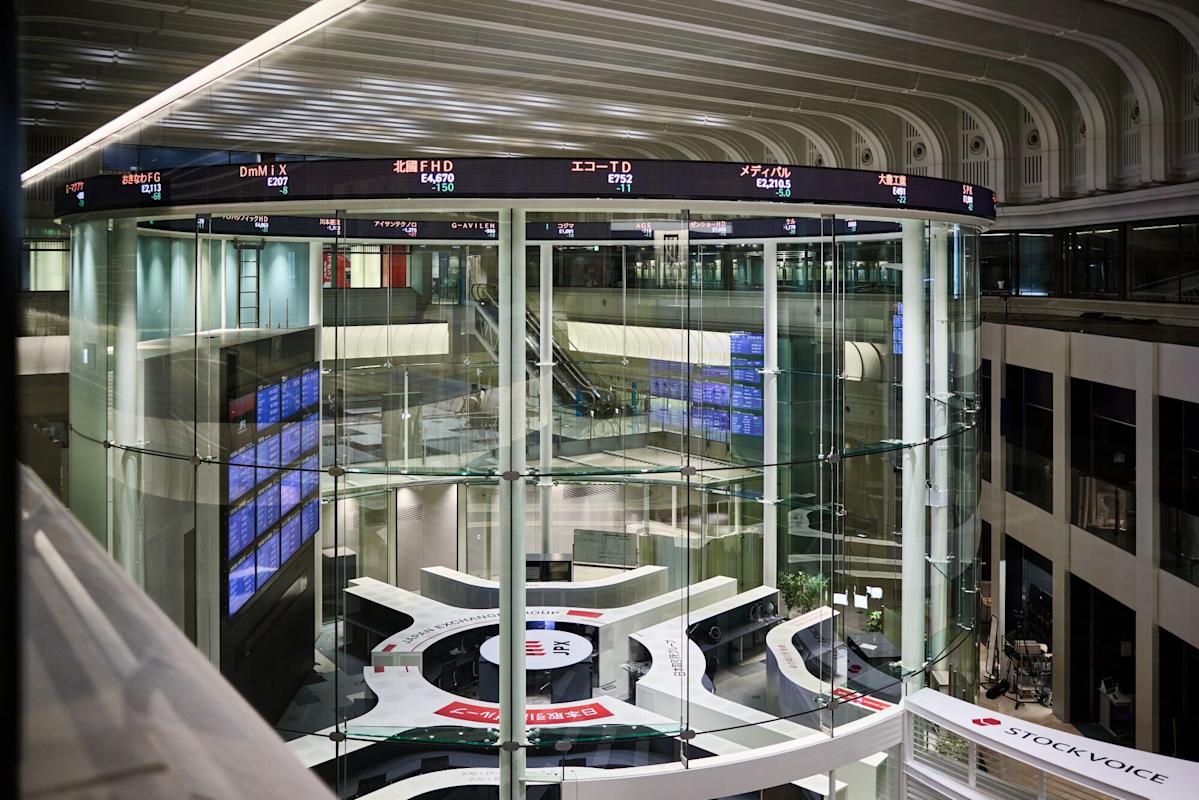Japan Stocks Fall on ETF Plan; Bond Yields Rise on Rate Bets
(Bloomberg) — Japan’s stocks dropped after the central bank said that it will begin selling its holdings of exchange-traded funds. Bonds fell as two dissenting voices on the board increased expectations of an interest rate hike next month.
The Nikkei 225 Stock Average earlier fell as much as 1.8%, while the broader Topix dropped as much as 1.1% in Tokyo. The Bank of Japan said at the end of a two-day gathering it will sell about ¥620 billion of ETFs per year by market value. It also kept rates steady.
Most Read from Bloomberg
The yen rose as much as 0.5% to 147.20, before paring its gains during Bank of Japan Governor Kazuo Ueda’s press conference after the decision. Inflation had moved closer to the bank’s target but hadn’t reached it yet, he said at the event.
“The announcement of ETF sales led to worsening sentiment, on expectation that selling pressure will rise particularly among large-cap tech stocks where the BOJ holds a high ownership ratio,” said Hiroki Takei, a strategist at Resona Holdings Inc. “In addition, with two policy board members voting against holding rates, speculation about a rate hike has quickly emerged, further weighing on the market.”
All 50 economists surveyed by Bloomberg expected no change on rates. It was the first time that two board members dissented from holding rates under Ueda’s watch.
“Yen weakness is back in play, but the longer-term path is still toward normalization. It’s a battle between BOJ caution versus hawkish dissenters, with global risk sentiment as the swing factor,” said Charu Chanana, chief investment strategist at Saxo Markets. “A move below 146 on USD/JPY requires either clearer BOJ normalization signals or a global risk-off shock.”
The 5-year government bond yield rose by 4.5 basis points to the highest level since 2008. The 10-year yield also jumped 4.5 basis points to 1.640% following the announcement.
Overnight index swaps show about a 54% chance of a rate hike by October, compared with 34% on Thursday. Japan’s two-year government bonds fell ahead of the BOJ’s decision, pushing yields to the highest level since 2008, tracking moves in the US.
BOJ’s rate hike path has been complicated by tariffs as well as domestic political uncertainty after Prime Minister Shigeru Ishiba’s recent resignation announcement. Still, BOJ officials are of the view that it may be possible to raise the benchmark interest rate again this year regardless of political instability, as economic conditions have developed in line with expectations, people familiar with the matter told Bloomberg.



Leave a Comment
Your email address will not be published. Required fields are marked *